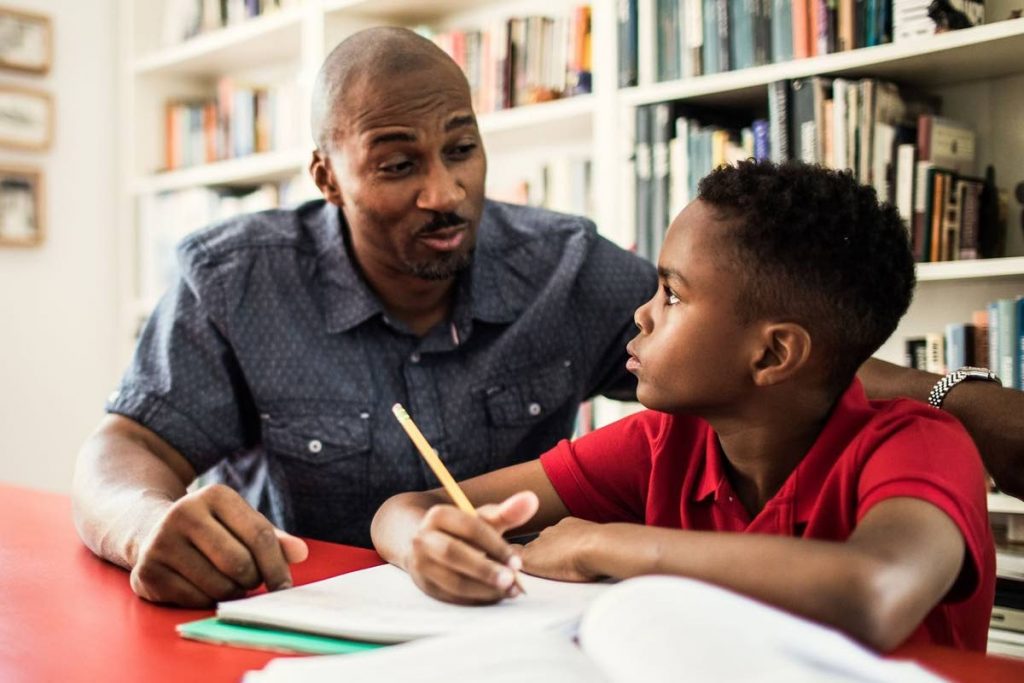Students, parents adjust to school at home

SCHOOLS have been closed since March 16 and Minister of Education Anthony Garcia suggested in early April that they may not reopen until September.
The virtual classroom has enabled some students to keep up with their work, but for others, it has not been ideal.
Newsday spoke to parents and students on attending classes from home and adjusting to the new arrangement. The parents of the students requested anonymity.
One 13-year-old student said he has not been enjoying his classes thus far. He has hour-long classes with breaks in between and his working hours are 8 am-2 pm.
“Some of my teachers cannot explain the work clearly to me,” he said. “I am getting the same work, but I feel that face to face is better because the teachers can explain the work clearer.”
His teachers also use the online platform Edmodo, which lets teachers and students share educational material. While it is not equipped for video conferencing, teachers can include links to video conferencing using other platforms like Zoom, in Edmodo. However, in this case he has no face time or video conferencing.
He said his teachers send work by e-mail and WhatsApp and he feels this has affected his educational experience.
“The classes are not engaging and interactive enough, because there is no virtual learning (face time).” His mother said she is not satisfied with the fact that there are no “real virtual classes,” where he would be able to interact with his teachers and ask questions in real time. She also feels that there was a lack of consideration for parents who are working from home themselves as well as supervising their children’s schoolwork.“For me it is a serious juggling act, managing schoolwork with my three boys, especially when they begin competing for time and attention.”
Overall, the form one student says the workload has been manageable and he has been able to keep up. What he misses most is hanging out with his friends.
“I get bored being at home too long.”
Working parents
A young mother caring for her six-year-old daughter while working from home also expresses difficulty in balancing her responsibilities at work and as a mother. She is having issues with the structure of the work being sent by teachers.
“The teachers are not considering that parents are still working,” she said. “They expect you to take time out of your working hours.”
Teachers at her daughters school recently told parents they will be instituting an online platform for students. However, she is unconvinced it will improve the situation. “The online class is just work being sent in a different platform (work is sent via WhatsApp and e-mail), only this time you can return the work for the teacher to mark.”
She said there is no video conferencing for face time with teachers, so parents are still required to closely monitor their children. “The most teachers may send is a video explaining, but no face time.”
The school also did not specify a work schedule, so she tries to stay within the normal school hours of 8 am-2 pm.
Slow learner
The mother of a form two student also expressed frustration with her son’s school.

additional challenge
of supervising their
children during
online classes, during their working hours, as well
as helping with
e-mailed work.
PHOTO courtesy
NATIONAL
GEOGRAPHIC.CO.uk -
“Not all of the teachers are as involved as they should be,” she said. “I feel he is at a disadvantage because he is a slow learner. So yes, the notes are there, but I will sometimes have to break it down as best as possible for him and try not to confuse him with what was taught in school.”
For certain subjects, like Spanish, she has to get help from people outside the school to assist him with his work.
“There are also some unrealistic assignment deadlines.”
Working from home has also been difficult for her at times. She has three children, in pre-school, primary school, and secondary school. Preparing presentations and school assignments while simultaneously keeping up with the expectations of her job has been stressful.
Technical difficulties
Things have not been all bad, however. Some students reported a positive experience with their online classes. An 11-year-old standard five student said he has been enjoying his classes. He is required to work from 8 am-12.30 pm with breaks in between.
His class time is primarily SEA revision.
His biggest issue with the virtual classroom is the internet connection.
“I don’t like the technical difficulties. I don’t like when I can’t hear what the teacher is saying.”
A faulty connection can also interfere with his ability to get the teacher’s attention if he has a burning question, and that can be frustrating. However, he said his teachers are very understanding and if he sends his questions afterward, they always answer.
When asked what he misses the most about school, his response was simple: “A real connection with my friends.”
There are times when he feels to run around and play games with his friends, but he cannot.
His main goal during his time at home is to prepare for the SEA exam, which was originally carded for April 2 but may not be held until December, according to the minister.
“I just want to hurry up and get it over with,” he joked, “but I am glad we have more time to prepare.”
Contact time
Michelle Valentine lives in the Heights of Aripo and her grandchildren go to primary school in the village. She helps her daughter take care of her three children, ages seven, five and two. Because of their age, it has been a challenge getting the kids to adjust to the new routine.
“We’ve had a lot of opposition,” she said with a laugh.
It was important for them to get the children into a routine, where there are allotted times during the day for work.
“They have been getting work from their teachers via WhatsApp every day.”
Valentine said she has been happy with the response of the teachers in ensuring the children in the village still have work to keep them occupied and up to date.
However, she emphasised the importance of face time, especially for smaller children.
“It’s the practical aspect of the work. The contact time to fill in the curriculum. That is what they are missing. Being there and being home is very different.”
Not satisfied
Not all schools, however, have made an effort to keep up with work for younger students.
A registered dietician and essential worker, who wished to be identified only as Nathalia, is still expected to go out to work. During the week, she said, she has to arrange for someone to look after her eight-year-old daughter and two-year old son. She said her daughter’s school, until recently, was not sending work for her. She was told this was due to Easter vacation in March.
“I am not satisfied with the response of the school. They took so long to send work.”
She said the school has been very “laissez faire,” and has not been properly communicating with parents. She keeps her daughter occupied with work that she provides, and activities like colouring for her younger brother, so she will not be too distracted.
The rest of their day is spent enjoying their new-found time together, bonding with family.


Comments
"Students, parents adjust to school at home"